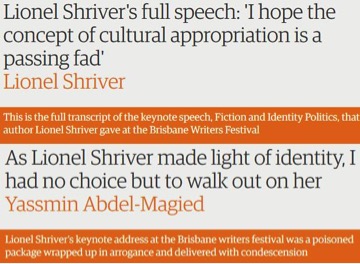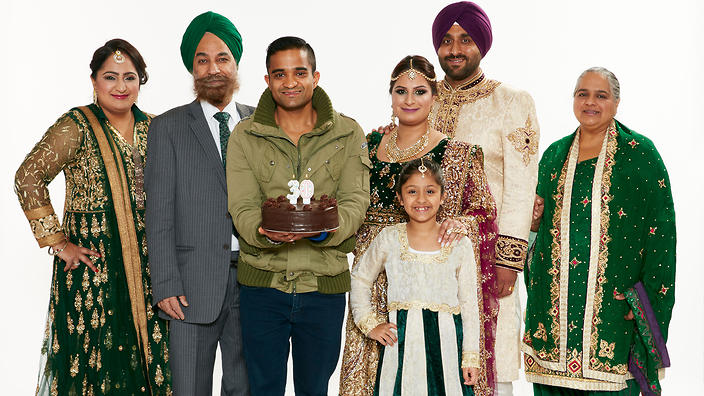By Sukhmani Khorana
Schooled in the Indian system, I received a good dose of Gandhian philosophy, and official historical accounts of his entwinement in the anti-colonial struggle in the subcontinent. As a ten-year old, I remember being particular struck when I read about his strategy of passive resistance, namely, when someone slaps you, turn your other cheek towards them in a bid to curb their aggression. I know this idea comes from Christian doctrine, but it just happened to come to us via Gandhi first.
I was reminded of this while trying to unpack Waleed Aly’s recent #SendForigivenessViral editorial on Channel Ten’s The Project in response to media celebrity Sonia Kruger’s clearly Islamophobic comments. While I concede the value of ‘having a bigger heart’ in inter-personal conflicts for the sake of one’s own well-being, I am not sure that self-help dogma should be uncritically applied to growing systemic problems like racism. At the same time, I don’t want to entirely dismiss the role of symbolic measures of solidarity such as the Halal Snack Pack offered to Pauline Hanson by Labor Senator of Iranian descent, Sam Dastyari in the wake the One Nation Party founder’s return to senate. Perhaps we need to learn to distinguish between ignorance, insult, and benign attempts to foster community, and respond accordingly.
An example of the above came to light when Pakistani-born NSW Greens MLC Mehreen Faruqi posted an image of an inflammatory comment on her public Facebook page that she couldn’t possibly ‘forgive’. While she usually curates these sexist and racist slurs in a satirical album called ‘Love Letters to Mehreen’, there are some that don’t even deserve a joke. If you have ever had an egg thrown at you on the basis of how you dress or look, you probably know what I mean. If you really do manage to call for more eggs under the circumstances, you are either superhuman or have an enormously diminished sense of smell.

Credit: Dr Mehreen Faruqi’s public Facebook page
What I am suggesting is that violence and passivity are not the only two possible responses to bigotry. Also, anger need not be conflated with aggression when it comes to tackling structural problems produced by decades, if not centuries of oppression. As cultural studies scholar Sara Ahmed argues in her essay on ‘Feminist Killjoys’, ‘Political struggles can takes place over the causes of unhappiness’. Isn’t it far more conducive to channelise one’s natural anger over the discrimination of certain groups to legitimate and non-violent protest, than to forgive individual perpetrators of racism and never address the system that produces them?
In a similar vein, not all manifestations of empathy are vacuous. As researchers, activists, politicians, social workers or politically-minded artists, people often begin with an experience of personal hardship or witness someone else’s, and move from empathy to reason and action in a journey that becomes their career or vocation. My research on the reception of refugee documentaries in Australia constantly comes up with the ‘finding’ that even left-wing identifying individuals prefer asylum seeker narratives that invoke emotions with stories that have a silver lining. Again, what could be productive, going forward, is to understand under what conditions these affective responses turn into catalysts for collective responsibility and action.
And finally, what do we make of symbolic gestures of solidarity with marginalised groups that often seem to coalesce around items of food or food culture? Let’s not put every institutionally-funded Harmony Day on a political pedestal. Still, it is a relief to see grassroots initiatives, both online and offline, that aim to educate, celebrate or merely offer an alternative to the demonisation of Halal-certified food. Besides the now well-known ‘Halal Snack Pack Appreciation Society’ on Facebook, there are various food businesses around Australia that train and employ former refugees and offer less patronising possibilities in the discourse of ‘welcoming diversity’. Still, lets not mistake these gestures for a full-blown revolution, or use them as a substitute for socio-political change in the longer term.
So, are there any circumstances under which those of us at the receiving end of racism (implicit or explicit) should offer the other cheek? It would be far better, depending on the nature of the bigotry, to protest with a placard, or educate over a kebab. Having said that, those with privilege have more options.










